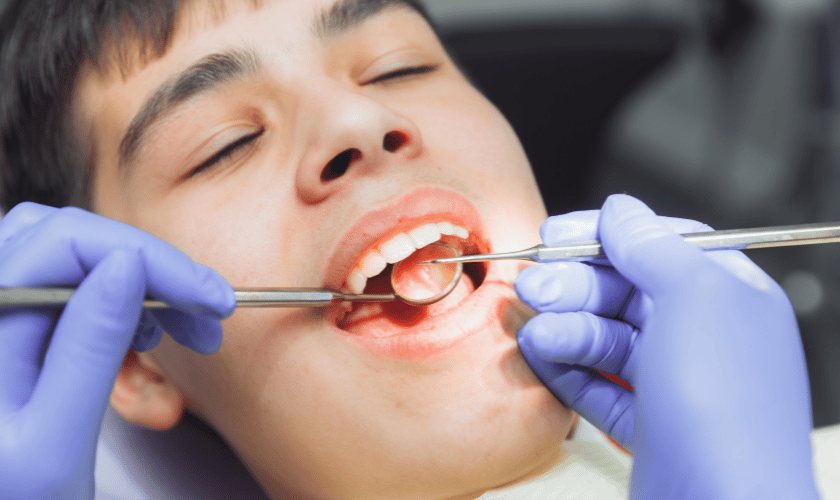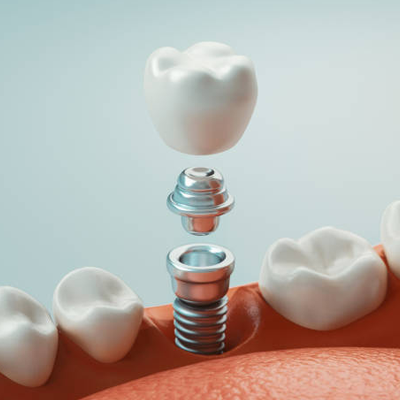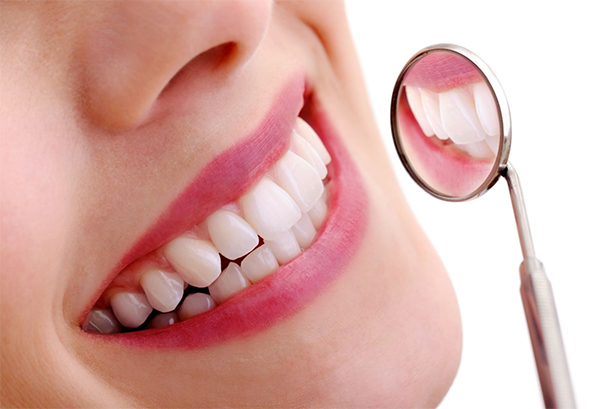
Caring for Your Child’s Teeth: A Guide to Pediatric Dentistry
Caring for your child’s teeth is an important part of their overall health and well-being. Fortunately, pediatric dentists are trained to provide specialized care tailored specifically to the needs of children. In this guide, we’ll talk about what you need to know to make sure that your child has healthy teeth and a bright smile. We’ll explain why having regular pediatric dental care is so important, what to expect at the dentist’s office, and how to manage any potential problems that may come up.
The Importance of Pediatric Dentistry
Pediatric dentists specialize in providing preventive oral healthcare services for infants, children, and adolescents up to the age of 18. They are trained to diagnose and treat a wide range of issues that may affect your child’s teeth, gums, and jaw. Regular dental care is essential for preventing cavities, gum disease, and other oral health problems. It also helps to ensure that your child’s teeth develop properly.
The Benefits of Regular Pediatric Dental Care
Regular pediatric dental care helps to ensure that your child’s teeth stay healthy and free from decay or other issues. It also allows the dentist to identify any potential problems early on before they can become serious. Regular checkups give your child the chance to become familiar with the dentist and learn about proper brushing and flossing techniques.
What to Expect at the Dental Appointment
At a pediatric dental appointment, your child’s teeth will be examined, cleaned, and polished. The dentist may also take X-rays or other images of the teeth and gums to check for any problems. The dentist may also use special tools and techniques to clean between your child’s teeth, where brushing and flossing can’t reach.
Managing Problems
Although regular dental care helps to prevent most major issues from developing, some problems may still arise. If the dentist finds any cavities, gum disease, abnormal growths, or other issues, they may recommend a course of treatment to restore your child’s teeth to health.
Procedures for Treating Cavities
If the dentist finds any cavities in your child or other issues, they will discuss treatment options with you. Treatment may include fillings, crowns, or root canals, depending on the severity of the issue.
Orthodontic Care
Orthodontic care is sometimes necessary to correct misalignment in your child’s teeth or jaw. Orthodontics is the branch of dentistry that focuses on correcting bite problems and alignment issues. If your child needs orthodontic treatment, the dentist may recommend braces, retainers, or other appliances to help straighten their teeth and improve their bite.
Sedation and Anesthesia
In some cases, your child may need to be sedated or put under general anesthesia for a dental procedure. This is usually done in extreme circumstances or when the procedure requires a lot of work and would cause discomfort without sedation. The dentist will discuss any potential risks and benefits with you before proceeding with treatment.
Preventative Care at Home
You can help to keep your child’s teeth healthy by providing them with good oral hygiene habits at home. Regular brushing, flossing, and rinsing with a fluoride mouthwash are essential for preventing cavities and other issues. It’s also important to limit sugary drinks and snacks and to provide your child with a healthy diet.
Caring for Your Child’s Baby Teeth
It’s important not to forget about your child’s baby teeth. They can be vulnerable to decay, so it’s important to make sure that they are kept clean and free from any issues. Regular dental visits should start as soon as your child’s first tooth appears, and continue until all the baby teeth are gone.
When to See a Pediatric Dentist
It is recommended that you take your child for their first dental checkup around the age of one or when their first tooth starts to appear. This will give the dentist an opportunity to check for any problems and begin preventive treatment early on. After this, you should schedule regular visits every six months or as recommended by your dentist.
Conclusion
Caring for your child’s teeth is essential for their overall health and well-being. Regular dental appointments with a pediatric dentist are the best way to ensure that their teeth stay healthy. You can also help by teaching your child good oral hygiene habits and providing them with a nutritious diet.
Q: When should my child’s first dental visit be?
A: It is recommended that you take your child for their first dental checkup around the age of one or when their first tooth starts to appear.
Q: What preventative treatments are available for children’s teeth?
Q: What preventative treatments are available for children’s teeth?
A: Regular dental appointments will involve a thorough examination, cleaning, and polishing of the teeth. Additionally, your child may need fluoride treatment or sealants to help protect against tooth decay.
Q: How can I help my child maintain good oral hygiene?
A: You can help to keep your child’s teeth healthy by providing them with good oral hygiene habits at home. Regular brushing, flossing, and rinsing with a fluoride mouthwash are essential for preventing cavities and other issues. It’s also important to limit sugary drinks and snacks and to provide your child with a healthy diet.








